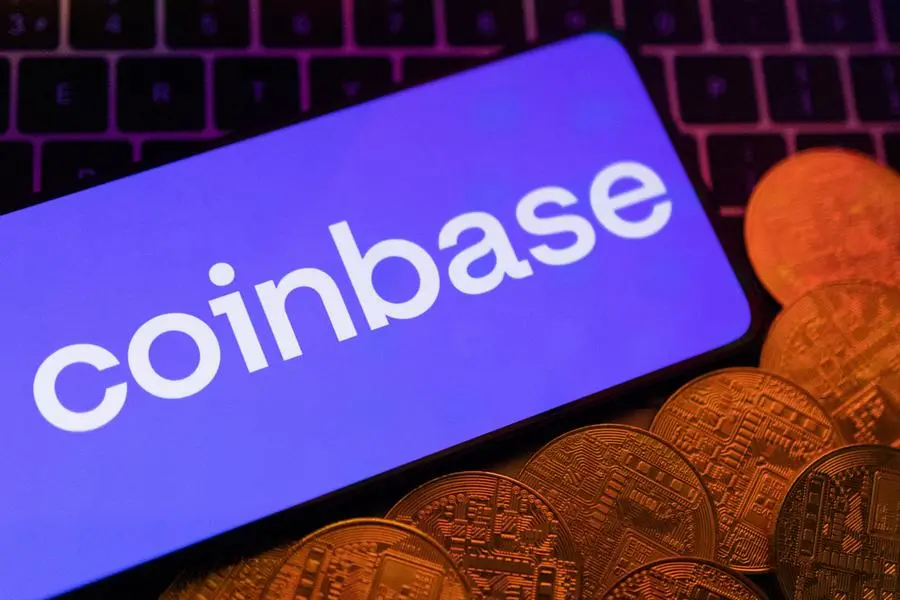PHOTO
A Coinbase business in Britain has been fined for breaching a regulatory agreement to improve its defences against financial crime, in the first sanction of its kind in the UK cryptoassets sector.
The Financial Conduct Authority (FCA) said on Thursday that CB Payments Limited (CBPL), a gateway for customers to trade cryptoassets within the global Coinbase Group, voluntarily agreed in October 2020 to make improvements to its financial crime controls after a visit by the watchdog.
The agreement stipulated that CBPL could not accept new high-risk customers until the issues were addressed. The company, however, took on or provided e-money services to 13,416 such customers with nearly a third depositing a total of $24.9 million, the FCA said.
This money was used to execute multiple cryptoasset transactions via other Coinbase entities, totalling about $226 million, the watchdog said, adding that repeated breaches of the voluntary agreement went undiscovered for almost two years.
"CBPL's controls had significant weaknesses and the FCA told it so, which is why the requirements were needed. CBPL, however, repeatedly breached those requirements," Therese Chambers, joint executive director of enforcement at the FCA, said on Thursday.
CBPL will pay a 3.5 million pound ($4.5 million) fine after qualifying for a 30% discount by agreeing to resolve the case.
"We welcome regulation and are dedicated to working proactively and closely with the most sophisticated financial regulators in the world, including the FCA, to ensure we offer the most compliant, trusted and secure platform for our customers," Coinbase said on Thursday.
Kate Gee, a crypto litigation lawyer at Signature Litigation, said the first fine of its kind was a warning for firms to take financial crime controls very seriously.
"Firms that do not do enough to protect against financial crime and who fail to comply with operational restrictions in place will face scrutiny and enforcement action," Gee said.
($1 = 0.7762 pounds)
(Reporting by Huw Jones; Editing by David Goodman and Mark Potter)





















